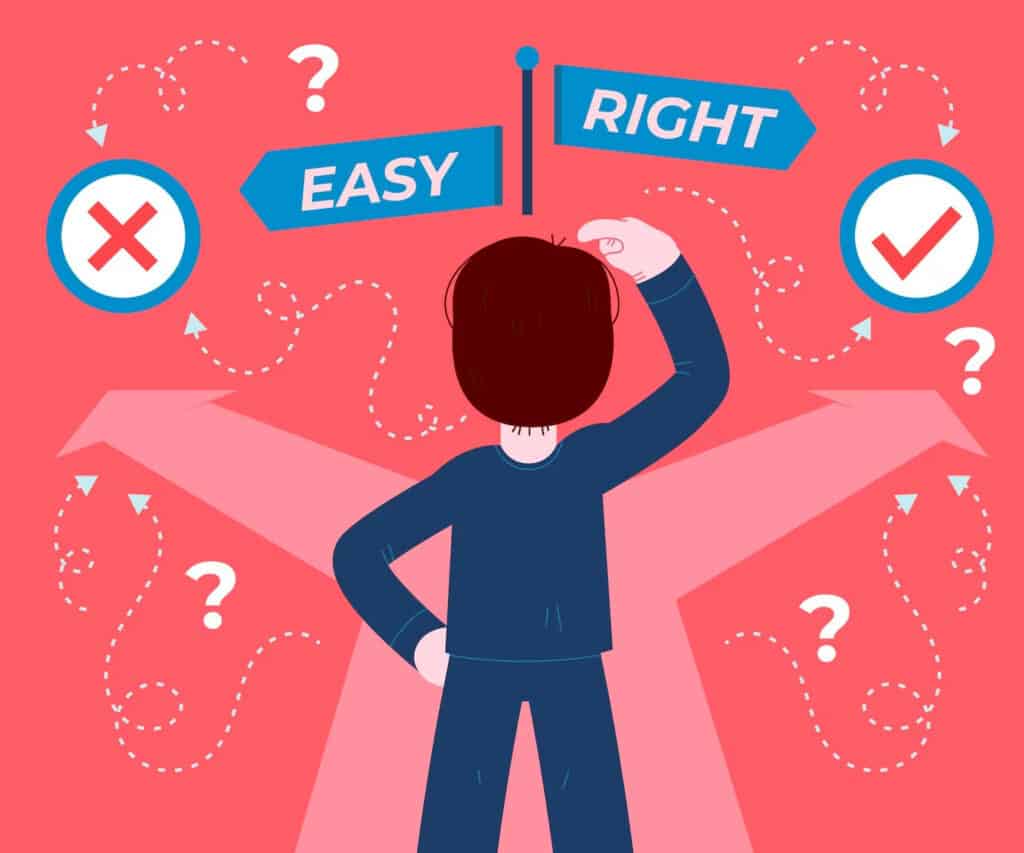In today’s fast-paced world, mental health has become a primary concern for many individuals. Online therapy has emerged as a cost-effective and accessible solution for those seeking mental health support.
But “how much does online therapy cost,” and how does it compare to traditional in-person therapy? In this blog post, we will explore the actual cost of online therapy, popular platforms, insurance coverage, and tips for finding more affordable therapy options.
The True Cost of Online Therapy

Online therapy costs vary depending on several factors, such as the platform, subscription model, and the therapist’s qualifications.
However, online therapy is generally more cost-effective than in-person therapy, making mental health services more accessible to a broader range of individuals.
As more people turn to telehealth, text therapy, and mobile app interfaces for mental health care, it is crucial to understand the different pricing structures and options available in today’s market.
Subscription Models vs. Pay-Per-Session
Regarding payment options, online therapy providers typically offer subscription models or pay-per-session plans.
Subscription models may include unlimited messaging, live video sessions, or other features, depending on the platform. On the other hand, pay-per-session plans provide more flexibility.
Some providers offer multiple subscription options to cater to different needs.
When choosing between subscription models and pay-per-session plans, you must consider your specific needs, budget, and preferences.
Subscription models may provide more comprehensive support and access to a therapist, while pay-per-session plans allow for greater flexibility and control over your therapy schedule and expenditures.
In-Person Therapy Costs vs. Online Therapy Costs

In-person therapy sessions with a mental health professional typically range from $100 to $250 per session.
Conversely, online therapy services are generally more economical, with subscription plans or bundled services providing significant savings. Subscription plans in online platforms generally cost between $40 and $90 per week.
By opting for affordable online therapy platforms, individuals can access mental health support from the comfort of their own homes, reducing travel time and expenses associated with traditional in-person therapy sessions.
In some cases, online therapy platforms may offer financial aid or accept insurance, further reducing the cost of therapy for eligible individuals.
Ultimately, the affordability and convenience of online therapy make it an increasingly popular choice for individuals seeking mental health support.
By understanding the cost differences between in-person and online therapy, you can decide which option best suits your needs and budget.
| Therapy Type | Cost per Session | Accessibility | Additional Benefits |
|---|---|---|---|
| In-Person Therapy | $100 – $250 | Dependent on location and availability | Direct, personal interaction with a therapist |
| Online Therapy (e.g., BetterHelp, ReGain) | $40 – $90 | Accessible from anywhere with an internet connection | Greater flexibility, reduced travel time, possible financial aid or insurance acceptance |
Insurance Coverage for Online Therapy

Insurance coverage for online therapy varies by provider and plan, with some platforms accepting insurance and others offering out-of-pocket payment options.
When researching insurance coverage for online therapy services, assessing if you are covered and if your benefits are advantageous is essential. Sometimes, paying cash may be more beneficial than utilizing insurance coverage for your therapy sessions.
It’s essential to communicate with your insurance provider to determine the extent of your mental health coverage and whether it encompasses online therapy services.
By understanding your insurance coverage, you can decide whether to use insurance or seek alternative, out-of-pocket payment options for your online therapy sessions.
How to Find Affordable Online Therapy Options

Finding affordable online therapy options may seem daunting, but resources are available to help you navigate the process.
Local mental health clinics, sliding scale fees, and employer assistance programs can offer low-cost or even free online therapy cheaper other options for those in need.
By exploring these resources and understanding your insurance coverage, you can reduce the overall cost of online therapy and access the mental health support you need.
| Method | Description |
|---|---|
| Local and Community Resources | Local Public Health Clinics: These clinics may offer low-cost or free therapy options, often providing services on a sliding scale basis. University Counseling Centers: Similar to public health clinics, university counseling centers may offer low-cost or free therapy services, typically on a sliding scale basis. Support Groups: Support groups can be an excellent resource for free or low-cost mental health support. Sliding Scale Basis: Many of these resources offer services based on the client’s income and ability to pay, making therapy more accessible for those with limited funds. Availability and Quality of Services: Not all types of therapy may be available through these resources, and the quality of services can vary. It’s crucial to research and understand the limitations before engaging in services. |
| Employer Assistance Programs (EAPs) | Employer Assistance Programs (EAPs): These programs can provide affordable online therapy services to employees and their families. Services Offered: EAPs typically offer assessments, short-term counseling, referrals, management consultation, and coaching services. These are often provided at no or low cost. Session Limit: Companies typically allow up to eight therapy sessions through their EAPs. Availability and Coverage: Employees should communicate with their employer or human resources department to determine if an EAP is available and what services it covers. |
Popular Online Therapy Platforms
Online therapy platforms provide a range of therapeutic services tailored to diverse needs, allowing users to connect with licensed therapists through messaging, video, and audio sessions.
Below, you can find some of the most popular online therapy platforms, highlighting their key features, benefits, and pricing.
| Provider | Good For | Location | Pricing |
|---|---|---|---|
| BetterHelp | Quick match with the right therapist four you | Online therapy | $65 to $90 per week (billed every 4 weeks) |
| ReGain | Quick match with the right couples therapist for you | Online therapy | $65 to $90 per week (billed every 4 weeks) |
| Teen Counseling | Teens from ages 13-19 | Online therapy | $65 to $90 per week (billed every 4 weeks) |
| Ritual | Couples guidance through proven interventions | Online service | $100 to $260 per month |
| Find-a-therapist.com | Finding and contacting the right therapist for you | Online and in-person therapy | Varies depending on the counselor fee |
| Online-therapy.com | Finding licensed and experienced therapists with a Cognitive Behavioral Therapy (CBT) approach | Online therapy | $40/week to $88/week (including our 20% discount first month) |
| Calmerry | Depression therapy, online grief counseling, anxiety therapy, therapy for OCD, self-esteem therapy, LGBT-friendly therapy | Online therapy | $49.50 to $73.75 per week (billed monthly) |
| TalkSpace | Depression, anxiety, bipolar disorder, OCD, PTSD, psychiatry | Online therapy | Varies according to insurance coverage or self-pay options |
When selecting a platform, it’s essential to consider the specific features and services provided. Understanding the unique offerings of each platform can help you make an informed decision and find the best fit for your mental health needs.
Choosing the Right Online Therapy Provider

Choosing the right online therapy provider involves considering cost, therapist qualifications, platform features, and insurance coverage.
When selecting an online therapy provider, it’s essential to research the platform and the available therapists to ensure they meet your specific needs and preferences.
One key factor to consider is the therapist’s licensing and qualifications. Licensed therapists must possess liability insurance and fulfill thousands of supervised clinical hours in the field as part of their licensing requirements.
Another vital factor is the platform’s features and services, which can vary widely among online therapy providers. For example, some platforms may offer unlimited messaging, live video sessions, or other features that may be important to you.
By exploring various platforms and understanding their unique offerings, you can find the best fit for your mental health needs and budget.
Tips for Maximizing Your Online Therapy Investment
- Research Available Resources: Start by exploring online review platforms like Trustpilot and BBB. These can provide reviews and ratings of various online therapy providers to help you make an informed decision.
- Utilize Free Trials: Many online therapy platforms offer free trials. Use these to evaluate if a platform or therapist suits your needs before committing to a long-term plan.
- Communicate Openly: Be sure to discuss your goals, expectations, and progress with your therapist. Open communication is key to a successful therapeutic relationship and can help ensure you get the most out of your investment.
- Consider Your Options: By considering various options and comparing services, you can maximize your online therapy investment and ensure you receive the mental health support you need.
The Effectiveness of Online Therapy

Research indicates that online therapy, including virtual therapy, can be as effective as in-person therapy, especially for cognitive behavioral therapy (CBT) and other evidence-based treatments.
While not all types of therapy can be conducted online, such as psychodynamic therapy, which necessitates in-person interaction with a mental health professional, online therapy services, have been demonstrated to be comparable to in-person therapy in many cases.
The effectiveness of online therapy is supported by numerous studies, which suggest that online therapy services are typically as effective as in-person therapy.
This makes online therapy a viable and cost-effective alternative for individuals seeking mental health support, particularly for those who cannot access traditional in-person therapy due to cost, location, or other barriers.
Summary
In conclusion, online therapy is a cost-effective and accessible solution for individuals seeking mental health support. You can find affordable and effective mental health care by understanding the actual cost of online therapy, exploring available platforms and payment options, and taking advantage of available resources.
As more people turn to online therapy, making informed decisions and investing in your mental well-being wisely is essential. The future of mental health care is increasingly digital, and online therapy offers an opportunity to access support no matter where you are.
Frequently Asked Questions
Is online therapy more cost-effective?
Online therapy is considered to be more cost-effective than traditional in-person therapy. It is often less expensive due to a lack of transportation and childcare costs, though the quality of virtual platforms can be lacking compared to real-time care.
Do you pay before or after therapy?
In general, payment for therapy services is expected before or at the time of service.
If you are using insurance to pay for your sessions, your therapist will submit the bill to the insurance company on your behalf, and you will be reimbursed under your coverage plan.
How much does online therapy cost?
Online therapy can be an affordable option for individuals seeking mental health services. On average, prices range from $40 to $90, depending on the platform used and the therapist’s qualifications.
What factors should I consider when choosing an online therapy provider?
When choosing an online therapy provider, assessing factors such as price, therapist qualifications, platform features, and insurance coverage is essential. Take the time to research these key considerations and select the best option for you.
References
Barak, A., Hen, L., Boniel-Nissim, M., & Shapira, N. A. (2014). A comprehensive review and a meta-analysis of the effectiveness of internet-based psychotherapeutic interventions. Internet-Delivered Therapeutic Interventions in Human Services, 5-55. Link.
Richards, D., & Viganó, N. (2013). Online counseling: A narrative and critical review of the literature. Journal of clinical psychology, 69(9), 994-1011. Link.





